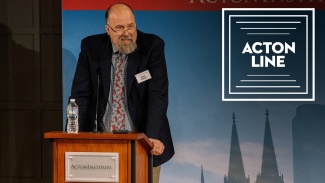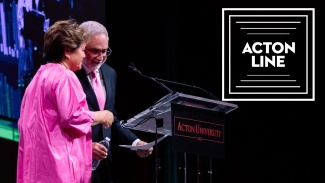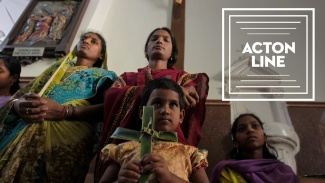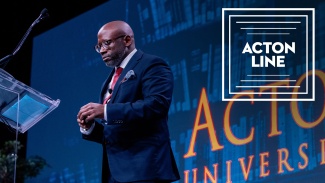
Overview
Genuine friendships are one of the core qualities of a great life.
Roman philosopher Marcus Tullius Cicero called a friend “a second self.” British author C.S. Lewis exalted friendship as adding “value to survival.” Whether in antiquity or modernity, friendship plays an integral part in the richness of the human experience for men and women alike. However, recent studies have shown that the amount of friendships the average man has are on the decline.
Daniel Cox, founder and director of the Survey Center on American Life and a senior research fellow at the American Enterprise Institute, sits down with Acton Line producer Gabriel Geagea to speak further on his latest article published in the National Review, “American men suffer a friendship recession,” an article focused on the diminishing rates of male friendships in the United States and its implications on America’s social sphere. If friendship is indeed an inherent good, what threats does its absence present to modern American society?
In addition to analyzing the root causes of this decrease in companionship and its effect on our nation’s social nature, Daniel and Gabriel discuss how emerging social norms can alter the ways in which society views friendships, and what society is to do to ensure good male friendships reappear as a strong thread in our American social fabric.
Do the American people view friendship as essential and giving value to our survival, or is it seen as an unnecessary commodity?
American Men Suffer Friendship Recession
The Survey Center on American Life
The joy of fatherhood: How sacrifice brings meaning to life
Wilfred McClay on friendship new and old – Acton Institute PowerBlog
How fatherhood leads to flourishing – Acton Institute PowerBlog
Bridging Income Inequality: The Subsidiarity Of Friendship – Acton Institute PowerBlog















